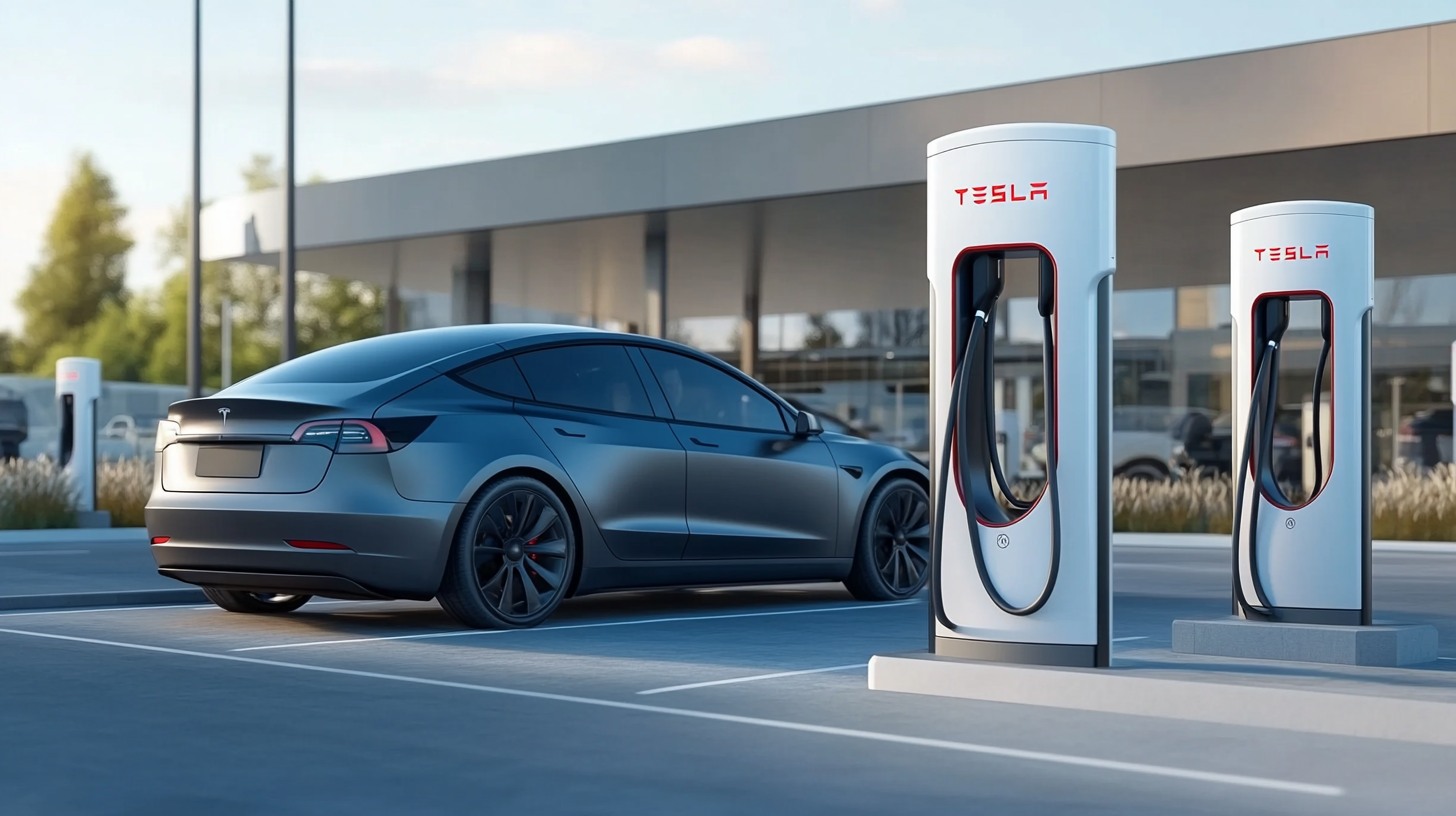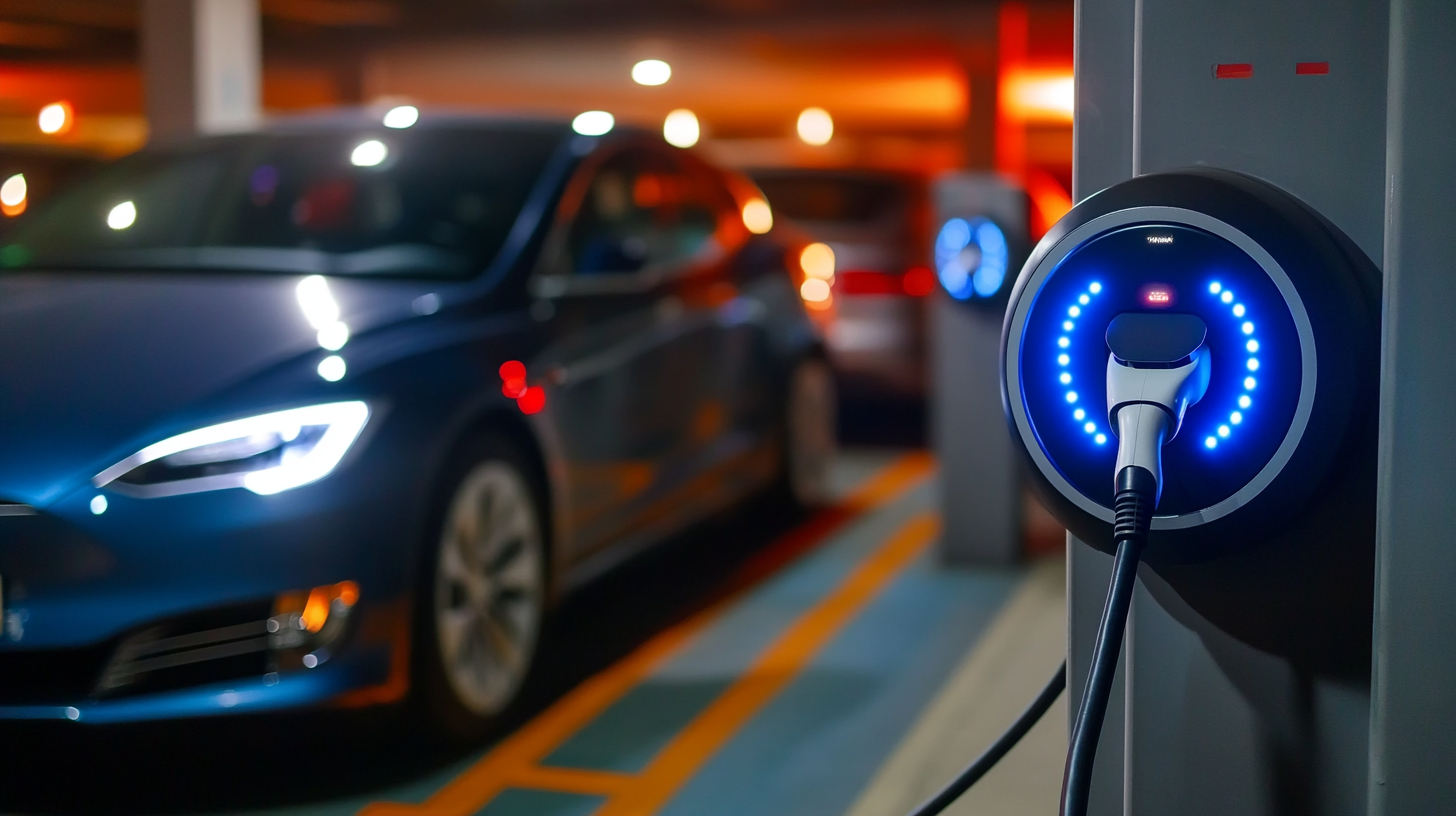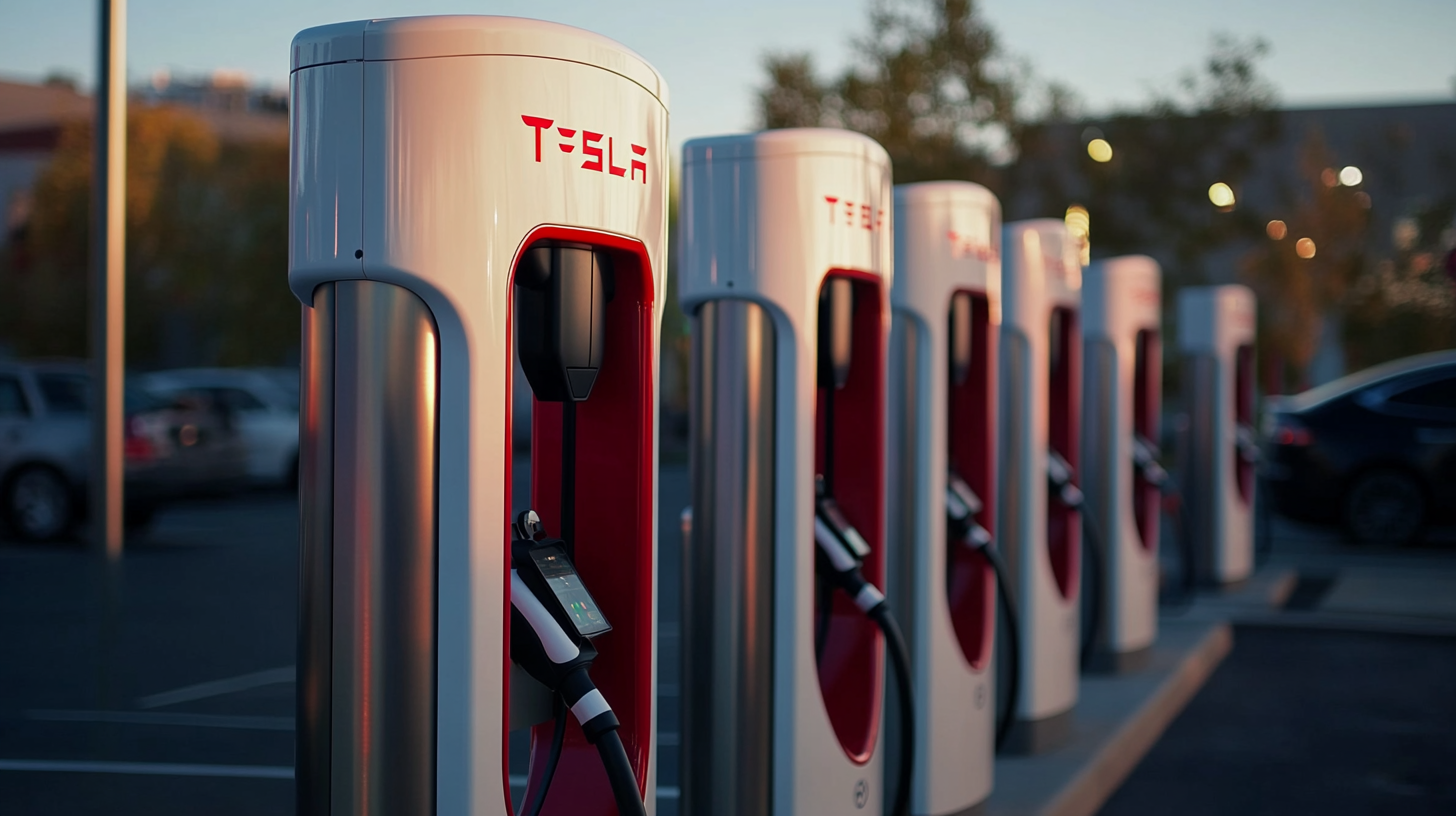How to Source the Best Commercial Ev Charger Suppliers for Your Business Success
As the electric vehicle (EV) market continues to expand, the demand for Commercial EV Chargers is surging, with recent forecasts indicating a compound annual growth rate (CAGR) of over 30% through 2027. Businesses in various sectors are recognizing the imperative to install charging solutions that cater to the growing number of electric vehicles on the road. However, sourcing the best Commercial EV Charger suppliers poses challenges, including ensuring product compatibility, scalability, and adherence to industry standards. Furthermore, a study by the International Energy Agency highlights that charging infrastructure investment is crucial for supporting the electrification of transportation, yet many companies struggle to navigate the diverse landscape of supplier options. By understanding industry applications and addressing common problems associated with different charger types, businesses can secure reliable partnerships that contribute to their success in this evolving market.

Identifying Key Criteria for Evaluating Commercial EV Charger Suppliers
 When sourcing the best commercial EV charger suppliers, it is crucial to identify key criteria to evaluate potential partners effectively. One critical factor is the reliability of the supplier. A supplier must demonstrate a solid track record of delivering high-quality products consistently, as any downtime in charging infrastructure can directly impact business operations. Additionally, examining their responsiveness and support services can provide insight into how well they will react in case of issues or emergencies.
When sourcing the best commercial EV charger suppliers, it is crucial to identify key criteria to evaluate potential partners effectively. One critical factor is the reliability of the supplier. A supplier must demonstrate a solid track record of delivering high-quality products consistently, as any downtime in charging infrastructure can directly impact business operations. Additionally, examining their responsiveness and support services can provide insight into how well they will react in case of issues or emergencies.
Transparency in supplier relationships also plays a significant role. In the face of uncertainties within the electric vehicle value chain, suppliers that provide clear communication regarding their pricing, lead times, and supply chain practices can build stronger partnerships. Furthermore, assessing their adaptability to changing market conditions and technology advancements is vital. Suppliers who can quickly pivot and innovate in response to market demands will be your best allies in ensuring your business remains competitive in the rapidly evolving EV landscape.
The Role of Industry Certifications and Standards in Supplier Selection
When sourcing commercial EV charger suppliers, understanding the role of industry certifications and standards can be a game-changer. Certifications such as the Underwriters Laboratories (UL) mark and the International Electrotechnical Commission (IEC) standards serve as indicators of quality and safety. They ensure that the products have been rigorously tested and comply with regulatory requirements, which can significantly reduce the risk of malfunction and liability in the long run. Prioritizing suppliers who hold these certifications not only protects your business but also enhances customer trust.
Furthermore, adhering to industry standards ensures that the EV chargers you procure are compatible with various electric vehicles and infrastructure, providing a seamless charging experience for users. By selecting suppliers who are compliant with the latest advancements in technology and performance standards, businesses can guarantee a reliable and efficient charging solution. Additionally, these standards often reflect a supplier's commitment to sustainability and innovation, aligning your business with environmentally responsible practices that are increasingly important to consumers today.
Analyzing Market Trends: Growth Projections for the EV Charger Industry
The electric vehicle (EV) charger industry is undergoing a transformative phase, driven by an influx of consumers prioritizing sustainability and governments pushing for greener transportation solutions. As more countries establish ambitious targets for EV adoption, the demand for efficient, accessible charging infrastructure continues to soar. Market projections indicate a substantial growth trajectory, with estimates suggesting that the global EV charger market could more than double over the next five years. This upward trend presents a significant opportunity for businesses that strategically position themselves within the market.
Understanding the nuances of these market trends is crucial for sourcing the best commercial EV charger suppliers. With the proliferation of different charger types and technologies, businesses must evaluate suppliers not only on cost but also on innovation and reliability. As technological advancements improve charging speeds and energy efficiency, aligning with suppliers who invest in research and development can give businesses a competitive edge. Moreover, anticipating regulatory changes and consumer preferences will further aid in partnering with reliable manufacturers who can adapt to these evolving demands. Selecting the right suppliers now will enhance long-term business success in this rapidly growing industry.
How to Source the Best Commercial Ev Charger Suppliers for Your Business Success - Analyzing Market Trends: Growth Projections for the EV Charger Industry
| Supplier Type | Market Share (%) | Growth Rate (2023-2028) | Key Features |
|---|---|---|---|
| Global Manufacturers | 40 | 20% | High capacity, fast charging |
| Regional Suppliers | 30 | 15% | Localized support, moderate pricing |
| Technology Startups | 15 | 25% | Innovative features, smart technology |
| Installers/Integrators | 10 | 10% | Installation services, consultancy |
| Distributors | 5 | 5% | Variety of brands, competitive pricing |
Understanding Cost Structures: Budgeting for Quality EV Charger Solutions
When embarking on the journey to install electric vehicle (EV) charging infrastructure for your business, understanding the cost structures associated with EV chargers is pivotal. Budgeting effectively requires a clear comprehension of both upfront costs and long-term financial implications. While initially, the acquisition of high-quality chargers may seem daunting due to their price tags, it’s essential to recognize that investing in reliable solutions can lead to greater overall savings, reducing maintenance and operational costs over time.
Additionally, the cost of EV chargers can be influenced by various factors including power output, installation requirements, and additional features such as smart technology integration. Businesses should account for installation expenses, ongoing electricity costs, and the potential impact on customer traffic when deciding on their budget. By carefully evaluating these components, you can ensure that your choice aligns with your business goals while delivering a robust and future-proof EV charging solution. Prioritizing quality over the lowest price can lead to enhanced customer satisfaction and loyalty, ultimately supporting your business's long-term success in an increasingly electric-driven market.
Building Long-Term Partnerships with Reliable EV Charger Suppliers
Building long-term partnerships with reliable EV charger suppliers is essential for the success of your business in the rapidly evolving electric vehicle market. The right supplier can not only meet your current needs but also help you adapt to future demands. To cultivate these partnerships, it is crucial to establish clear communication channels. Regular discussions about expectations and feedback can significantly strengthen your relationship and lead to better service.
When sourcing suppliers, prioritize those with a proven track record of reliability and responsiveness. Check for customer reviews and case studies that showcase their ability to deliver consistently. An effective tip is to conduct site visits when possible; seeing their operations firsthand can provide valuable insight into their capabilities and reliability. Additionally, explore the possibility of collaborative innovation, as partnering on new technologies can lead to mutual benefits.
Lastly, consider the importance of aligning your values with those of the supplier. Choosing partners that prioritize sustainability, quality, and customer service can lead to a more harmonious collaboration. Establishing shared goals not only strengthens the partnership but also creates a foundation for future growth and success in the EV sector.

